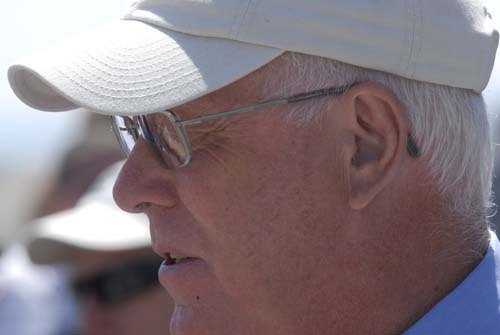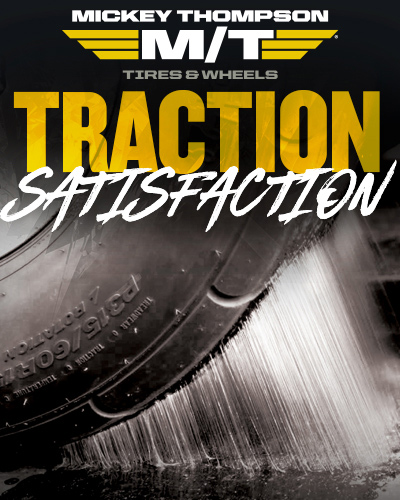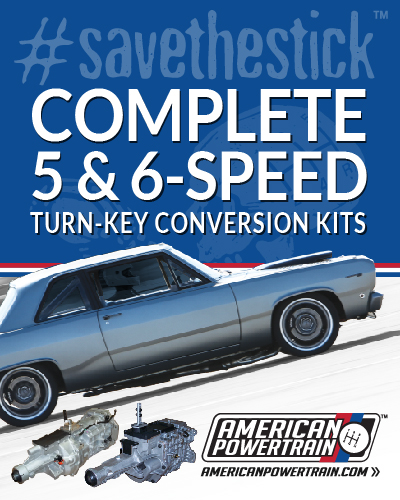LIGHT: BAN INCLUDES IHRA RACES
Fri, 2009-01-23 12:30
IHRA Racers Will Only Be Faced With Points Forfeiture …
 The NHRA considers running an IHRA event the same as a test session or
a match race, this according to NHRA Vice President of Operations
Graham Light. The NHRA announced on Wednesday that testing in 2009 will
be limited as a cost-cutting measure.
The NHRA considers running an IHRA event the same as a test session or
a match race, this according to NHRA Vice President of Operations
Graham Light. The NHRA announced on Wednesday that testing in 2009 will
be limited as a cost-cutting measure.
The NHRA detailed their new regulation using the following verbiage: Unlimited testing for Top Fuel and Funny Car teams will be permitted until the 2009 season opener at Auto Club Raceway at Pomona, Feb. 5. At that point, and during the 2009 NHRA Full Throttle Drag Racing Series season (Feb. 5 to Nov. 15), Professional nitromethane teams will be limited to a maximum of four one-day test sessions. This policy applies to both the team and driver.
NHRA's definition of testing includes, but is not limited to, any run or attempted run conducted at any track whatsoever, whether or not it is an NHRA track or NHRA-sanctioned track. Exhibitions, match racing, licensing attempts, and the like are considered testing and will be subject to this testing policy. For example, participating at a two-day match race will be defined as two testing-session days. Regardless of the number of runs attempted per day, each day will be defined as one testing IHRA Racers Will Only Be Faced With Points Forfeiture …
 The NHRA considers running an IHRA event the same as a test session or a match race, this according to NHRA Vice President of Operations Graham Light. The NHRA announced on Wednesday that testing in 2009 will be limited as a cost-cutting measure.
The NHRA considers running an IHRA event the same as a test session or a match race, this according to NHRA Vice President of Operations Graham Light. The NHRA announced on Wednesday that testing in 2009 will be limited as a cost-cutting measure.
The NHRA detailed their new regulation using the following verbiage: Unlimited testing for Top Fuel and Funny Car teams will be permitted until the 2009 season opener at Auto Club Raceway at Pomona, Feb. 5. At that point, and during the 2009 NHRA Full Throttle Drag Racing Series season (Feb. 5 to Nov. 15), Professional nitromethane teams will be limited to a maximum of four one-day test sessions. This policy applies to both the team and driver.
NHRA's definition of testing includes, but is not limited to, any run or attempted run conducted at any track whatsoever, whether or not it is an NHRA track or NHRA-sanctioned track. Exhibitions, match racing, licensing attempts, and the like are considered testing and will be subject to this testing policy. For example, participating at a two-day match race will be defined as two testing-session days. Regardless of the number of runs attempted per day, each day will be defined as one testing day.
Many of the IHRA teams, with imminent short-fields, had planned to run a mix of their regular series as well as select stops on the NHRA tour. Per the NHRA regulations, a team would be able to run one IHRA event and remain within the guidelines of the testing regulations. After one day of the second event, they would be in violation.
Light said the move should in no way be construed as a sleight towards the IHRA but as a means of preserving the spirit of the rule.
“We’re not trying to hurt the IHRA events,” Light said. “That’s not our intent by any means. But, a Force team could go and run an IHRA event and use it solely as testing, that’s why that has to apply to that.”
Last season following the NHRA event at Topeka, the NHRA imposed a testing ban in response to a shortage of nitromethane by the official supplier.
The NHRA said the part-time teams, who race the IHRA series, will only have to forfeit their points at the ensuing event and will not been deemed in flagrant violation of the rule. The point forfeiture, he believes, should have no adverse affect on those teams who are likely not chasing a place in the Countdown to the Championship.
Light said the rule was changed from last year’s mandate of no testing on national NHRA Full Throttle event tracks to include all tracks regardless of sanction. At issue was a test session prior to the NHRA U.S. Nationals in Indianapolis which was attended by a number of the multi-car teams. Complaints from at least one major team owner regarding what he deemed as an unproductive session also contributed to the universal ruling. The team owner’s contention was the NHRA either needed to ban testing outright or allow them to take the cheaper route by sticking to the day after event sessions.
“We had teams tell us at the end of the season, they never realized how much money they had saved by not testing,” Light explained. “In the end, the same guys who were testing before the ban ended up in the same positions as they were when there was open testing. There’s a belief that if one multi-car tests than they all have to test just to keep up.”
Light said the NHRA has placed a clause in the rule that is intended to deter circumvention of the rules by those who don’t run on the IHRA tour regularly.
“That’s clearly not intended for the IHRA teams,” Light added. “Take for example a person like Bruce Litton who runs our races from time to time. He’s not going to get fined or disciplined.”
Light then offered a further example.
“Last year Tony Schumacher had such a horrendous lead before Indy and no one was going to catch him,” Light said. “He had the number one spot locked up and no one was ever going to catch him. Knowing the points would be adjusted, he could skip those events and go test elsewhere to heart’s delight, violate this policy, and basically be a point where he doesn’t need them. That would give him a competition edge over his competitors. That’s why we put that one sentence in there.”
Light admittedly believes no one would flagrantly violate the rule, but for enforcement purposes, it needs to be stated on the record.
He told CompetitionPlus.com the NHRA broached the subject of the testing ban with several teams but deemed it inappropriate to reveal those identities.
The one area the testing ban doesn’t apply to is nostalgia racing which Light says, isn’t applicable to the current technology being run today which therefore provides no advantageous data for their primary applications.
Light believes the NHRA is fully justified in their decision to limit the testing and with decisions as tough as this; one might quickly draw the conclusion the sanctioning body is damned if they do, and damned if they don’t.
“We’re virtually in that situation with everything we do,” Light admitted. “You’re never going to please everyone, even if you’re the government making laws or sanctioning body. People are different and that’s what makes this world great. There are many times we will debate and just agree to disagree.
“We just want to save our teams money, that’s all,” Light continued. “We have to be sensitive to the economics with these teams in this day and age.”
 The NHRA considers running an IHRA event the same as a test session or
a match race, this according to NHRA Vice President of Operations
Graham Light. The NHRA announced on Wednesday that testing in 2009 will
be limited as a cost-cutting measure.
The NHRA considers running an IHRA event the same as a test session or
a match race, this according to NHRA Vice President of Operations
Graham Light. The NHRA announced on Wednesday that testing in 2009 will
be limited as a cost-cutting measure.The NHRA detailed their new regulation using the following verbiage: Unlimited testing for Top Fuel and Funny Car teams will be permitted until the 2009 season opener at Auto Club Raceway at Pomona, Feb. 5. At that point, and during the 2009 NHRA Full Throttle Drag Racing Series season (Feb. 5 to Nov. 15), Professional nitromethane teams will be limited to a maximum of four one-day test sessions. This policy applies to both the team and driver.
NHRA's definition of testing includes, but is not limited to, any run or attempted run conducted at any track whatsoever, whether or not it is an NHRA track or NHRA-sanctioned track. Exhibitions, match racing, licensing attempts, and the like are considered testing and will be subject to this testing policy. For example, participating at a two-day match race will be defined as two testing-session days. Regardless of the number of runs attempted per day, each day will be defined as one testing IHRA Racers Will Only Be Faced With Points Forfeiture …
 The NHRA considers running an IHRA event the same as a test session or a match race, this according to NHRA Vice President of Operations Graham Light. The NHRA announced on Wednesday that testing in 2009 will be limited as a cost-cutting measure.
The NHRA considers running an IHRA event the same as a test session or a match race, this according to NHRA Vice President of Operations Graham Light. The NHRA announced on Wednesday that testing in 2009 will be limited as a cost-cutting measure.The NHRA detailed their new regulation using the following verbiage: Unlimited testing for Top Fuel and Funny Car teams will be permitted until the 2009 season opener at Auto Club Raceway at Pomona, Feb. 5. At that point, and during the 2009 NHRA Full Throttle Drag Racing Series season (Feb. 5 to Nov. 15), Professional nitromethane teams will be limited to a maximum of four one-day test sessions. This policy applies to both the team and driver.
NHRA's definition of testing includes, but is not limited to, any run or attempted run conducted at any track whatsoever, whether or not it is an NHRA track or NHRA-sanctioned track. Exhibitions, match racing, licensing attempts, and the like are considered testing and will be subject to this testing policy. For example, participating at a two-day match race will be defined as two testing-session days. Regardless of the number of runs attempted per day, each day will be defined as one testing day.
Many of the IHRA teams, with imminent short-fields, had planned to run a mix of their regular series as well as select stops on the NHRA tour. Per the NHRA regulations, a team would be able to run one IHRA event and remain within the guidelines of the testing regulations. After one day of the second event, they would be in violation.
Light said the move should in no way be construed as a sleight towards the IHRA but as a means of preserving the spirit of the rule.
“We’re not trying to hurt the IHRA events,” Light said. “That’s not our intent by any means. But, a Force team could go and run an IHRA event and use it solely as testing, that’s why that has to apply to that.”
Last season following the NHRA event at Topeka, the NHRA imposed a testing ban in response to a shortage of nitromethane by the official supplier.
The NHRA said the part-time teams, who race the IHRA series, will only have to forfeit their points at the ensuing event and will not been deemed in flagrant violation of the rule. The point forfeiture, he believes, should have no adverse affect on those teams who are likely not chasing a place in the Countdown to the Championship.
Light said the rule was changed from last year’s mandate of no testing on national NHRA Full Throttle event tracks to include all tracks regardless of sanction. At issue was a test session prior to the NHRA U.S. Nationals in Indianapolis which was attended by a number of the multi-car teams. Complaints from at least one major team owner regarding what he deemed as an unproductive session also contributed to the universal ruling. The team owner’s contention was the NHRA either needed to ban testing outright or allow them to take the cheaper route by sticking to the day after event sessions.
“We had teams tell us at the end of the season, they never realized how much money they had saved by not testing,” Light explained. “In the end, the same guys who were testing before the ban ended up in the same positions as they were when there was open testing. There’s a belief that if one multi-car tests than they all have to test just to keep up.”
Light said the NHRA has placed a clause in the rule that is intended to deter circumvention of the rules by those who don’t run on the IHRA tour regularly.
“That’s clearly not intended for the IHRA teams,” Light added. “Take for example a person like Bruce Litton who runs our races from time to time. He’s not going to get fined or disciplined.”
Light then offered a further example.
“Last year Tony Schumacher had such a horrendous lead before Indy and no one was going to catch him,” Light said. “He had the number one spot locked up and no one was ever going to catch him. Knowing the points would be adjusted, he could skip those events and go test elsewhere to heart’s delight, violate this policy, and basically be a point where he doesn’t need them. That would give him a competition edge over his competitors. That’s why we put that one sentence in there.”
Light admittedly believes no one would flagrantly violate the rule, but for enforcement purposes, it needs to be stated on the record.
He told CompetitionPlus.com the NHRA broached the subject of the testing ban with several teams but deemed it inappropriate to reveal those identities.
The one area the testing ban doesn’t apply to is nostalgia racing which Light says, isn’t applicable to the current technology being run today which therefore provides no advantageous data for their primary applications.
Light believes the NHRA is fully justified in their decision to limit the testing and with decisions as tough as this; one might quickly draw the conclusion the sanctioning body is damned if they do, and damned if they don’t.
“We’re virtually in that situation with everything we do,” Light admitted. “You’re never going to please everyone, even if you’re the government making laws or sanctioning body. People are different and that’s what makes this world great. There are many times we will debate and just agree to disagree.
“We just want to save our teams money, that’s all,” Light continued. “We have to be sensitive to the economics with these teams in this day and age.”
Categories:




































